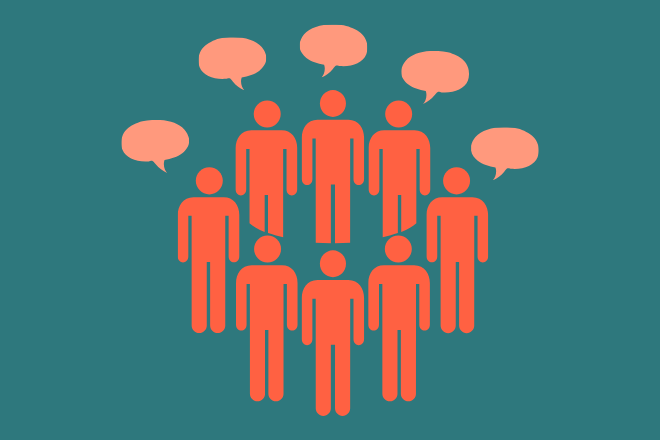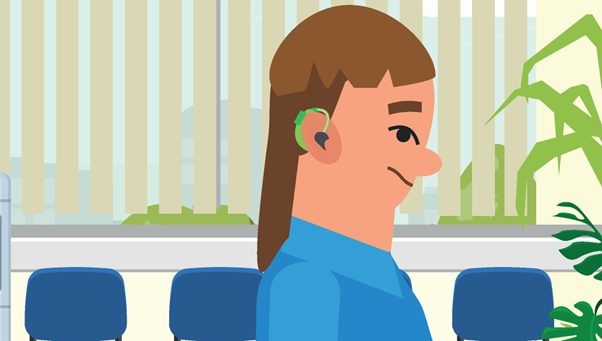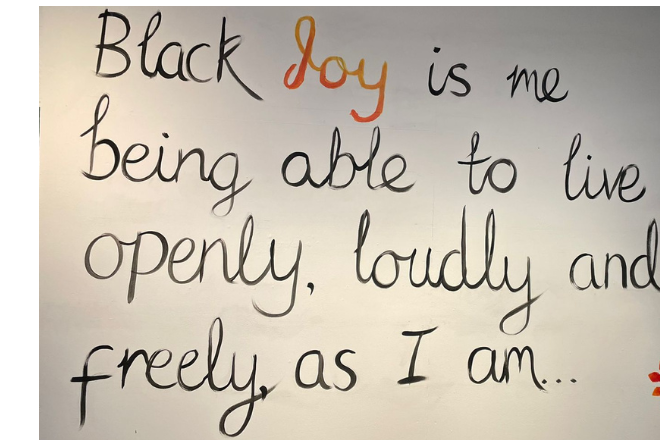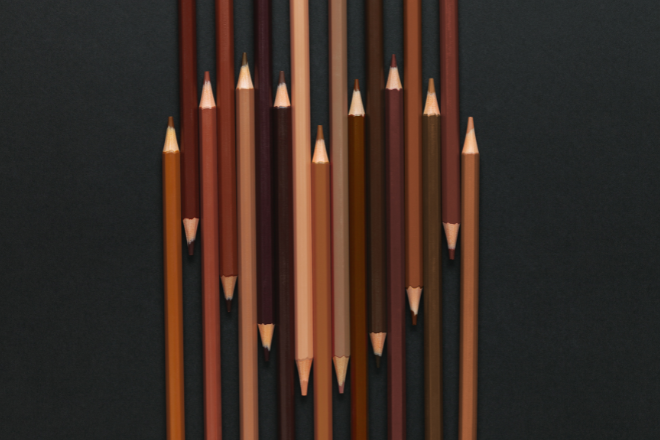Co-Productive Collective members of Niccola (Nicc), Tania (and her young baby Maxim!) and myself (Naheen) came together, supported by the UCL Grand Challenge of Mental Health and Wellbeing, to enable the space for the students who may be working on their dissertations, or undertaking research projects, to consider what co-producing work with lived experienced members of the community means, and how it can be done in the best way possible for the diverse range of projects they may create or be involved with. The session was part of the ExtendED Learning programme at UCL, a collaboration between UCL and Students’ Union UCL, which offers students a wide range of free learning opportunities.
The workshop
The session consisted of a 2-hour morning workshop with a group of students studying either for a degree or Postgraduate degree in different subjects. The aim of the workshop was in a two-way collaborative and engaging conversational style approach; to allow students to think about what co-production means to them currently, and to reflect on how it can be used within their projects and dissertations moving forward. We were all there to share ideas and learn together, regardless of background, status, titles, experience and knowledge.

Emily from the UCL Grand Challenges team introduced us and explained to students how Co-Production Collective work alongside various UCL projects and with students, and other organisations outside of UCL, to enable co-production to be considered, designed, and always improved along the way.
Nicc explained the ‘Ways of working’ that Co-Production Collective use (Credit: Royal College of Psychiatrists) to try to create a space and way of working that is respectful and harmonious to include everyone in the room as equals. The ‘Ways of working’ outlined included things such as listening with respect and openness, and maintaining confidentiality so all members of the group feel safe enough to trust each other to build up meaningful and genuine relationships. Language should be free of jargon, so that everyone feels they can understand the conversation, regardless of their abilities, skills or backgrounds. It was gently reminded to be sensitive and humane always as an approach, as topics can be emotional for some participants.
Tania asked students to think about how they saw co-production in their current minds whether personally or in a professional sense, and to reflect on these ideas briefly. Answers fed back in the room were about collaborating, and treating everyone as equals, and considering those in the room who may not understand all of the conversations that take place.
.png)
I (Naheen) explained about the origins of the co-production model over the years, and how different organisations in the UK have different models of co-production, and how there is not always a right or wrong way of co-producing, but people with lived experience are always at the centre of the model. It is important to be honest and transparent such as when it is consultation, or co-design, rather than true co-production. There may be various reasons such as financial or time constraints as to why an organisation cannot fully co-produce, and these were also discussed. The culture and people who make up a team in each organisation is different too, as well all come with different personalities, preferences and ideas too.
Tania explained that there need to be certain pieces of a puzzle in place, such as culture, structure, practice and review to ensure co-production can work in practice (Credit: Social Care Institute of Excellence), as sometimes there can be barriers to taking part as lived experience members, as well as organisations putting in difficult policies such as being more risk averse, or having a culture of academics being seen higher in terms of hierarchal knowledge, compared to those with lived experience. It is all well and good having these ideas in place to get co-production started, but gaining genuine input from people with lived experience as to how the project is going on a regular basis is essential to learning lessons, and to improving the process moving forwards.
Nicc explained how Co-Production Collective have an underlying set of core values that underpin all of the work they do, such as being inclusive and transparent, embracing of change, kind and reflective. Striving to live and breathe these values gives a human approach to co-production where everyone feels their voice should be heard. Sometimes the simplest of values, no matter small they seem, such as remembering to be kind, can give someone so much empowerment to truly be themselves, and comfortable enough to contribute as much as they would like to share, where they also feel valued for their time.

In terms of students own work, Tania and Nicc supported students to share how they can implement co-production in their own work, and to highlight any barriers or obstacles they may face in their projects. Students reflected that within their studies, there can still be a seniority of academics and their importance, and so challenging that can be an issue. Ethical issues, or bureaucracy and policies such as ethical approval was also mentioned. It was also noted that some students may discuss technical terms, and were not sure if those people with lived experience may understand them, or be interested in them. And here we all discussed about the importance that treating everyone with respect was key, as we can all come with different interests, backgrounds and life experience. This applies to us all, those with lived experience and without. We are all more than the box or label that is placed on us by others. So, being open, curious and asking questions if not sure, was found to be helpful.
I discussed that different people have different types and forms of power and privilege within society, such as within work, where they live, and based on their background, identity or personal characteristics. Power should not be looked on as good or bad, but as something we can all be aware of, as well the privilege we all hold in society in different forms. And this can change throughout our lives, such as when we lose our job and or become ill this may make us feel we have less power than someone who is very wealthy and able bodied, for example. Gender, ethnicity, class, are examples of how we can perceive or judge people. This was discussed with the students. By having diverse voices in a room, we ensure we consider different narratives and nuances, and can implement different ideas and approaches. Reflecting on their own power and privilege, students considered examples such as if different people had different accents, and if some people were given more power than others, then certain people may not feel able to communicate fully within the group, as it may make them feel inferior within the group, for example.
Reflections
Reflecting on the session, diversity and differences within individuals can be embraced and cherished in a holistic manner, whether it is within our personal or professional context, with lived experience or without. The session enabled us to reflect on how co-production can still work in an ever-changing and demanding society, where all people and communities can learn and grow together, for the benefit and shared understanding of supporting us all.
This blog was written by Naheen with help from Tania and Nicc



.png)


.png)
.png)

.png)

.png)
.png)
